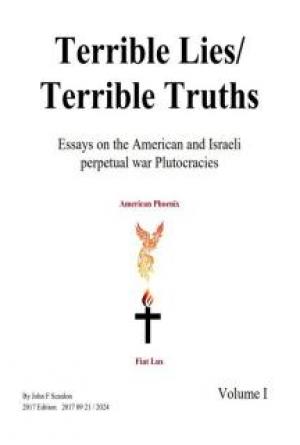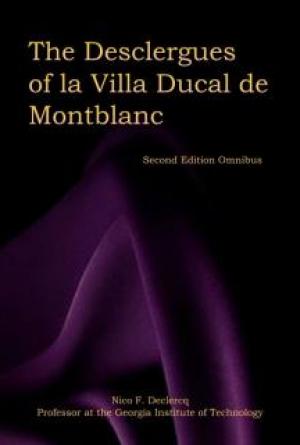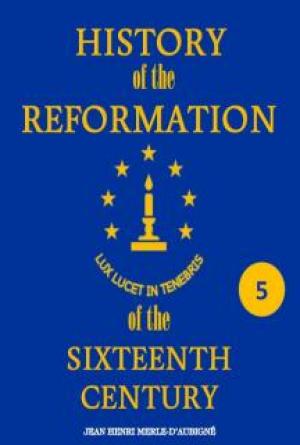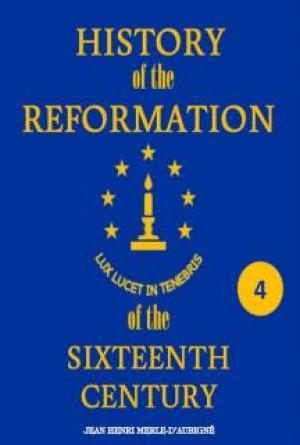Index
A
Abbott, Rev. Lyman, article "The Basis of an Anglo-American Understanding," 223
Act of Congress, April 20, 1898, 45
Adams, Prof. George Burton, article "A Century Anglo-Saxon Expansion," 22
Adams, John, is descent, 105
Adams, John Quincy, his descent, 105
Adams, Samuel, his descent, 100
Alfred the Great, his millennium, 73, 74; his work, 75
Anglo-American League, resolution of same, 57; its officers, 57; its brief history, 152
Anglo-Saxon alliance, origin of suggestion, 48; first limited to an offensive and defensive treaty, 54; growth of alliance, 54, 55; indefiniteness of same, 55, 58, 59; motive of alliance, 57, 58; present condition of subject, 59; first step in the movement, 59, 60; how the subject will be treated by politicians, 60, 61; impracticability of defensive and offensive treaty, 61, 62, 152; basis of alliance, 67, 68; commemorated by some instrument, 68; Revolution of 1776 said to be a barrier to alliance, 84; past should be forgotten, 94, 95; England has changed since 1776, 95, 96; alliance is natural as to time, 100; alliance is natural as to people, 100, 101; first place ought to be given to family nationality, 102; same language, 108-112; same literature, 116; same political institutions, 124; same laws, legal customs, general modes of judicial procedure, 133, 134; same tendency of religious thought, 137, 138; value of intermarriage, 138; value of a common drama, 139, 140; natural community in everything important, 141; commercial reasons, 143, 144; self-preservation leads to same, 145, 146; effect of recent years upon the two nations, 153; state of public opinion, 209, 210; majority of newspapers favour alliance, 210; pulpit favours same, 210; the stage favours same, 210; quotations favouring alliance, 212 et seq.; see Methods of union; see Subjects of treaty
Anglo-Saxon race, European combination vs. same, 50; accusations against, 51; its striking characteristic, 63, 76, 77; corroborations by eminent authority, 63, 64; all of one family, 101, 102; vigour due to admixture of blood, 103; another characteristic, 147; its ideals have never been destroyed, 148; its unselfish progress, 148, 149; duty of race, 150
Arbitration court, 207, 208
Arthur, Chester A., his descent, 100
B
Bacon, Lord, importance of commercial freedom, 203, 204
Bainbridge, William, his descent, 107
Beresford, Lord Charles, article "An Anglo-American Alliance," 219
Bright, John, his wish for unity, 224
Bryce, James, advocating common citizenship, 188, 213
Buchanan, James, his descent, 106 Burke, Edmund, commends English colonial government, 88
C
Calhoun, John C., his descent, 106 Canada, bond with England merely sentimental, 100; her present relation to England, 100; her constitution, 163; effect of same, 163; her value to England, 164; England formal sovereign and actual champion, 165, 166; how affected by war between England and United States, 166, 167; relation to United States, 172, 173; lesson from Scotch history, 173-175; originally embraced in plan of American Republic, 175; attempts towards annexation, 176, 177; apathy in United States, 177; benefits of union, 195
Carlyle, Thomas, the power of literature, 124
Chamberlain, Joseph, article favouring alliance, 213, 214
Chase, Salmon P., his descent, 100 China, commercial relations to Western Powers, 16; policy of Western Powers towards China, 17, 20; her internal condition, 18-20; conduct of Powers in late difficulty, 21, 22
Choate, Rufus, his descent, 107 Christianity, introduction into England, 72; its relation to government, 72; its part in England, 73; first step in English progress, 73
Civilisation, its primary meaning, 64; its secondary meaning, 65, 66; third meaning, 66
Clay, Henry, his descent, 100 Cleveland, Grover, his descent, 106
Commercial relations of England and America, an early glimpse, 143; one business community, 144; statistics of imports and exports, 144; advantages of free commercial relations, 202-204; two benefits from commercial reciprocity, 205
Common citizenship, scheme of same, 180-182; effects of same, 182, 189, 199, 200; Constitution to be amended, 183; rights and duties resulting from establishment of common citizenship, 183, 184; advocacy of same, 188, 189; see Naturalisation Laws
Constitution of United States, comparison with Magna Charta, 127-131; for the people, 128; agreement between thirteen independent States, 128; the legislative power regulated, 128; distinction between it and English charters, 130, 131; source of inspiration, 132; Bill of Rights copied from English charters, 132; new matter in same, 132; Gladstone's eulogy, 133
Copeland, Walter Charles, article favouring alliance, 214
Cuba, short-sighted policy of United States towards Cuba, 45
D
Davis, Jefferson, his descent, 100 Decatur, Stephen H., his descent, 107
De Tocqueville, language the strongest tie, 110
Dewey, George, his descent, 107 Dicey, Professor, advocating common citizenship, 188; article, "A Common Citizenship for the English Races," 212
Dilke, Sir Charles, article on alliance, 214; article, "The Future Relations of Great Britain and the United States," 215, 216
E
Egbert, union brought about by, 74
Ellsworth, Oliver, his descent, 107
Emerson, Ralph Waldo, quotation from English Traits, 73; his descent, 108
England, predictions of decline, 5; predictions refuted, 5, 6; amelioration of society in nineteenth century, 8; checking Russia in the East, 12, 13; conduct in late Chinese difficulty, 21; future policy towards China, 22; her aid to United States in Spanish-American War, 49. 50, 52, 53; accused of leading United States into Imperialism, 54;—History: commencement of national life:, 71, 72; Christianity in England, first step in her progress, 72, 73; consolidation of kingdoms, second step in her progress, 74; drift towards unity arrested, 75, 76; causes which finally resulted in alliance, 76; comparison with Grecian cities, 76, 77; influence of Roman law, third step in her progress, 77, 78; the Great Charter, the Petition of Right, the Habeas Corpus Act, the Bill of Rights, the Act of Settlement, fourth span in English development, 79, 80; union with Scotland, fifth span in English development, '80; opposition in Scotland to union, 81; discovery of America, sixth span in English development, 81, 82; independence in the colonies, seventh great span in English development, 83, 84; England has changed since 1776, 95, 96; English welcome to American literature, 123; English political development, 124-131; time of Alfred, 125; seeds of parliamentary birth, 125, 126; germs of Magna Charta, 126; the grants of Henry I. and Stephen, 127; origin of House of Commons, 129; separation from Church of Rome, 130; despotism under Tudors, 130; reforms in reign of William III., 130;—state of religion, 137, 138; her position in Europe, 145, 146; her relation to Canada, 163, 164; formal sovereign and actual champion, 165-167; see Revolutionary War; see Magna Charta
English race, see England
Evarts, William M., his descent, 107
Evolution, definition of, 48, 49
F
Farragut, David Glascoe, his descent, 107
Fillmore, Millard, his descent, 106
Flower, B. O., article., The Proposed Federation of the Anglo-Saxon Nations," 226
Foote, Andrew Hull, his descent, 107
France, her internal decay, 22, 23; mistakes in government, 23; incongruous position of French Cabinet, 24; deplorable condition of Republicanism, 25, 29; effect of Franco-Prussian War, 26, 27; origin of alliance with Russia, 27; hurtful effect of alliance, 28; her true policy, 28, 30; potency of militarism, 29, 30
Franco-Russian alliance, origin of, 27; effect of, 28
Franklin, Benjamin, his descent, 106 Freeman, Professor, nation defined by language, 113; system of separate free cities, 170; his hope for common citizenship, 188
G
Gallatin, Albert, his descent, 108
Gardiner, Charles A., article "The Proposed Anglo-American Alliance," 221, 222
Garfield, James A., his descent, 106 Gibbon, Edward, narrow policy of preserving, without mixture, pure blood of the ancient citizens, 103
Gladstone, William E., eulogy on American Constitution, 133
Government, its primary ends, 62; the ideal commonwealth, 62, 63; government has character like individual, 69, 70; isolation is unnatural, 147; government is made for man, 200; distinction between democracy and republic, 201, 202
Grant, U. S., his descent, 106
Grecian states, deficient in political unity, 187; Roman policy compared, 187
Greene, Nathanael, his descent, 107
Grote, language a tie among the Greeks, 113
H
Hamilton, Alexander, his descent, 108; neighbouring nations natural enemies of each other, 171
Harrison, Benjamin, his descent, 106 Harrison, William H., his descent, 106
Hawthorne, Nathaniel, his descent, 108
Hayes, Rutherford B., his descent, 106
Henry, Patrick, his descent, 106 History, its underlying forces, 46, 47
Holmes, Oliver Wendell, descent of, 108
Hosmer, James K., article, "Dependence, Independence, Interdependence," 224, 225
I
Immigration, sentiment against, 194; sentiment not against English-speaking peoples, 194, 195
Ireland, common citizenship a benefit to, 190
Irving, Washington, his descent, 108
Isopolity, description of same, 185, 186; see Common citizenship
J
Jackson, Andrew, his descent, 106 Jackson, Thomas Jonathan, his descent, 107
Jay, John, his descent, 107 Jefferson, Thomas, his descent, 105 Johnson, Andrew, his descent, 106
Johnston, Joseph E., his descent, 107
K
Kent, James, descent of, 107
Kingsford, R. E., article "Roma! Cave Tibi!" 228-230; "A Hasty Alliance," 230
L
Language, power of, 109, 110; bond of sympathy, III; tie among the Greeks, 113-115
Laurier, Sir Wilfred, interview with same concerning Canadian question, 171
Law, similarity of laws in United States and England, 133-135; differences in same, 136
Lea, Charles Henry, article. "The Decadence of Spain," 35
Lecky, the dream of many English and Americans, 154, 155; sentiment of nationality, 100
Lee, Robert Edward, his descent, 107
Lincoln, Abraham, his descent, 100
Literature, its function, 116, 117; its imperishableness, 117; universal medium of communication, 118; English literature compared, 118; consequences of its development, 119; derivation of English literature, 120; its native quality, 121, 122; English welcome to American literature, 123
Longfellow, Henry W., his descent, 108
Low, A. Maurice, article "America's Debt to England," 233; "Russia, England, and the United States," 233,234
Lowell, James Russell, his descent, 108
M
McConnell, Robert, article "Commercial Relations between Canada and the United States," 231
McDermot, Rev. George, article "The Anglo-American Alliance and the Irish-Americans," 231-233
McFadden, Theodore, article on William Penn, 73
McKinley, William, his descent, 100 Madison, James, his descent, 105
Magna Charta, comparison with Constitution of United States, 127-131; enacted in a single day. 127; brief summary of its provisions, 127; parties to charter, 127; Deed of Confirmation, 128; rights of persons and things, 128; limitation of kingly power, 129
Marshall, John, his descent, 107 Methods of union, impracticability of one nation for all Englishmen and Americans, 154; impracticability of federation, 154, 155; treaty binding upon all a feasible method of union, 155-157; contents of treaty, 157
Mexico, her peculiar position, 42; power of President Diaz, 42; incapability of people for republican government, 43
Miles, Nelson A., his descent, 107
Mills, Hon. David, article, North American Review, "Which Shall Dominate, Saxon or Slav?" 13-16
Mommsen, admission with reference to English, 63; sins of fathers not visited upon children, 95; common citizenship in Grecian communities, 180; Hellenic system of common money, 200
Money, influence of common standard, 205. 206
Monroe Doctrine, application to confederation of Spanish-speaking countries, 40, 41
Monroe, James, his descent, 105 Montesquieu, quotation from Spirit of Laws, 63
Morgan, J. Pierpont, his descent, 108
Morris, Robert, his descent, 108
N
Naturalisation laws, their general policy, 191; history of, in United States, 191, 192; object of same, 193; laxity of their enforcement, 196; objections to curtailment answered, 196; foreigners cannot interfere, 197, 198; see Common citizenship
O
Olney, Richard, article explaining Washington's policy of isolation, 226, 227
P
Perry, Oliver H., his descent, 107
Peter the Great, his dream of conquest, 13
Pierce, Franklin, his descent, 106
Poe, Edgar Allan, his descent, 108
Polk, James K., his descent, 106
Preble, Edward, his descent, 107
R
Ralph, Julian, article favouring alliance, 224
Randolph, John, his descent, 100
Revolutionary War, natural result of existing conditions, 85, 86; apology for same, 86, 87; antecedent conditions prior to same justified, 88, 89; war a blessing to the United States, 90; England fought for union with us, 93
Ridpath, John Clark, article "Shall the United States be Europeanised?" 227; article "The United States and the Concert of Europe," 228
Roman law, third span in English civilisation, 77; influence in England, 77, 78; comparison with common law, 78; instrument of despotism, 78
Roosevelt, Theodore, his descent, 106
Russia, internal condition, II; external policy, 11,12,14,15; her adaptability to govern China, 15: her Chinese policy, 17
S
Schurz, Carl, article advocating alliance, 220, 221
Scotland, union with England, 80; opposition to same, 81; wisdom of union, 174, 175; Bacon's advocacy of same, 179
Scott, Winfield, his descent, 107 Self-preservation, nature of, explained, 145
Semmes, Raphael, his descent, 107
Seward, William H., his descent, 106
Sheridan, Philip H., his descent, 107
Sherman, William Tecumseh, his descent, 107
Smith, Goldwin, union of Canada with United States, 176
South American republics, condition of same, 41
Spain, financial depletion, 37; dissatisfaction with government, 38; natural advantages, 39; strong monarchical tendency, 39, 40
Spanish-American War, its significance, 2, 3; England's aid to the United States, 49, 50, 52, 53: importance of war, 55
Spanish, and Portuguese people, number of persons who speak language, 31-33; territory occupied by same, 31-33; absence of political unity, 33; their past history contrasted with present, 34, 35; individual characteristics, 35; comparison with Anglo-Saxons, 35, 36; difficulties of establishing federation between Spanish-speaking countries, 39-41; see Spain
Stead, W, T., the Americanisation of the world, 234
Story, Joseph, his descent, 107 Subjects of treaty, Canada to come into the United States, 159, 160; union must be voluntary, 161; interest plus sentiment, 162; treaty of common citizenship sustainable, 198; proviso to treaty under certain conditions, 199; free commercial relations between English-speaking countries, 202, 203; same gold, silver, nickel, and copper money, 205, 200; uniform standard of weights and measures, 207; arbitration court, 207, 208; see common citizenship
Sumner, Charles, his descent, 106
Sympolity, meaning of same, 185, 186
T
Taney, Roger Brooke, his descent, 107
Taylor, Zachary, his descent, 100
Temple, Sir Richard, article "An Anglo-American vs. a European Combination," 218
Thomas, George Henry, his descent, 107
Thucydides, quotation from, 162
Tilden, Samuel J., his descent, 107
Tourgee, A. W., article "The Twentieth Century Peacemakers," 216, 217
Tyler, John, his descent, 100
U
United States, effect of Spanish War upon, 3, 4; conduct in late Chinese difficulty, 21; future policy towards China, 22; assent to federation of Spanish-speaking countries, 40, 41; weak policy towards Cuba, 45; England's support to United Slates in Spanish-American War, 49, 50,52, 53; population is heterogeneous, 103, 104; foreign element quickly assimilated, 104; loyalty of these new citizens to the Republic, 104, 105; predominant element is of English, Scotch, and Irish descent, 105; statement illustrated, 105-108; English welcome to American literature, 123; colossal development explained, 134; barrier to creation of Republic, 134; similarity between English laws and laws of United States, 135-137; state of religion, 137, 138; English financial support built up the country, 143; Canada bone of contention between England and United States, 172; Canada's relation to United States, 172, 173; indifference in United States towards union with Canada, 177; history of naturalisation laws, 191; see Canada; see Revolutionary War; see Constitution of the United States
V
Van Buren, Martin, his descent, 106
W
Waldstein, Prof. Charles, article "The English-Speaking Brotherhood" 222
Washington, George, his descent, 105
Wealth, its true meaning, 6; its relation to the State, 7
Webster, Daniel, speech at Plymouth, 63, 64; his descent, 106; speech at Oxford, 122; speech at public dinner of New England Society of New York, 149, 150
Whittier, John Greenleaf, his descent, 108
[Transcriber's Note: All spellings have been preserved as printed. Footnotes have been re-numbered to convert them to chapter endnotes.]
End of Project Gutenberg's The Anglo-Saxon Century, by John Dos Passos







